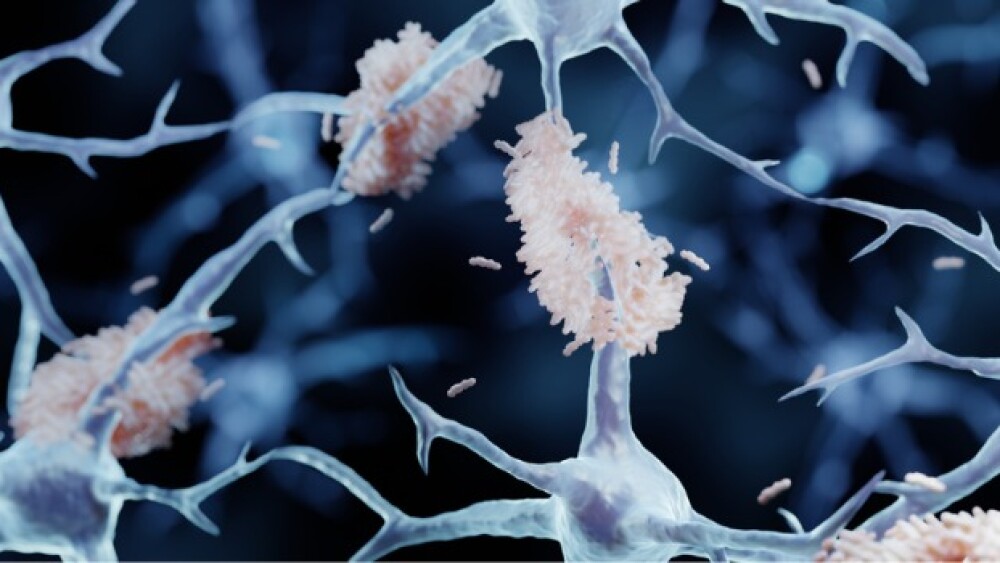While the trial was designed to test safety and not efficacy, patients treated with Araclon Biotech’s experimental ABvac40 vaccine saw a 38% drop in disease progression compared to placebo.
Pictured: Alzheimer’s disease illustration/iStock, Artur Plawgo
Araclon Biotech has confirmed the safety of its experimental Alzheimer’s disease vaccine in an exploratory analysis of Phase II trial data. The Grifols Group company reported “encouraging” results on Tuesday in patients with mild cognitive impairment or mild early-stage AD as part of a late-breaking presentation at the 2023 Clinical Trials on Alzheimer’s Disease conference.
ABvac40, an active vaccine against the Aβ40 peptide, had a favorable safety profile with a robust immune response, the company reported. Research suggests Aβ40 plays a role in cerebral amyloid angiopathy, a prevalent condition in AD patients.
“By specifically targeting the Aβ40 peptide, ABvac40 is tapping into a central mechanism believed to drive cognitive decline with potential to alter the course of disease,” Mercè Boada Rovira, a principal investigator of the study, said in a statement.
Although the trial was not designed to test efficacy on cognitive impairment, the treated group showed as much as a 38% drop in disease progression compared to placebo based on the Mini-Mental State Examination score. The results suggest ABvac40 may address the cognitive decline aspect of AD.
While tests including the Repeatable Battery for the Assessment of Neuropsychological Status and the Trial Making Test showed favorable results for ABvac40 versus the placebo group, global or functional scales did not show a difference in those treated compared to the placebo arm.
“We are pleased to report final positive results from the Phase II study of ABvac40, including a robust immune response with some significant reduction in disease progression, all with a favorable safety profile,” Araclon CEO Jose Terencio said in a statement.
The vaccine’s design targets the C-terminal end of the Aβ40 peptide, which the company believes prevents meningoencephalitis, simultaneous inflammation of the meninges and the brain. The side effect was seen in a previous first-generation vaccine two decades ago, when 6% of patients treated with Elan Pharmaceuticals AN1792 developed the life-threatening complication and product development was halted.
Terencio mentioned previous setbacks due to meningoencephalitis, stating the recent Phase II results for ABvac40 validate its clinical potential. Araclon is now evaluating the next steps forward.
Florida-based Vaxxinity has the most advanced vaccine targeting beta-amyloid in the clinic. The biotech’s Phase IIa data were published in August 2023, suggesting it could offer more competitive advantages over newly approved anti-amyloid therapies such as less frequent dosing, more convenient administration and potentially lower rates of ARIA-E.
Vaxxinity has received Fast Track Designation from the FDA for its AD vaccine. However, it’s stalled a bit while seeking a strategic pharma partner to take it into Phase III.
Kate Goodwin is a freelance life science writer based in Des Moines, Iowa. She can be reached at kate.goodwin@biospace.com and on LinkedIn.






